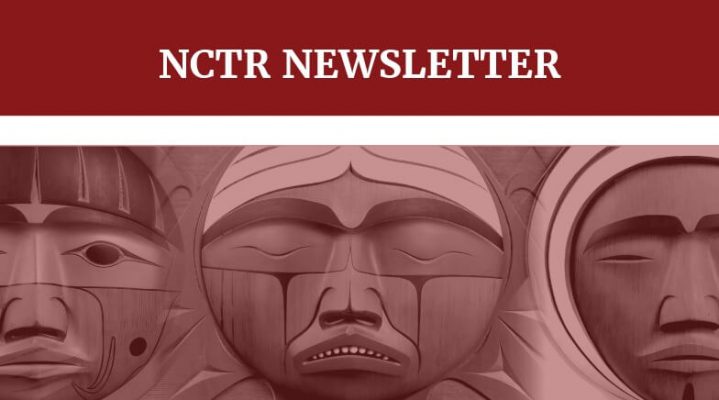NCTR Education Presentations
About the NCTR Education Presentations
The National Centre for Truth and Reconciliation (NCTR) delivers presentations, workshops, and educational activities upon request — each session is tailored to the audience’s knowledge and interest in topics related to residential schools and the archives.
Whether your audience is just learning about residential schools for the first time or is interested in learning how to engage in social justice action, staff at the NCTR are able to engage the public on a variety of subjects related to our mandate.
Topics and Themes
Common topics requested include:
- Residential school history and residential school experiences
- Indian Residential Schools Settlement Agreement
- History of the Truth and Reconciliation Commission of Canada (TRC) and the NCTR
- NCTR collection and how to access and work with the archives (including how to conduct primary source document analysis)
- Colonial systems and impacts (60s scoop, day schools, sanatoriums, MMIWG)
- Intergenerational trauma and healing
- Student Memorial Register, missing children, and unmarked burials
- Getting engaged with the Calls to Action and social justice action.
Book a Presentation
To book a presentation, please use the request form below and our team will work with you to create a custom presentation that best meets your needs.
To help inform your decision, you can review and download the [NCTR background and educational training options] pdf. This document includes information on available programming, content, delivery, costs, and sample agendas.
Requests from educators, students, organizations, and the private and public sectors are evaluated by the NCTR education team to determine the appropriate speaker.
Engagement can range in length anywhere from an hour to half-day programs and are available throughout the year.

NCTR’s spirit name – bezhig miigwan, meaning “one feather”.
Bezhig miigwan calls upon us to see each Survivor coming to the NCTR as a single eagle feather and to show those Survivors the same respect and attention an eagle feather deserves. It also teaches we are all in this together — we are all one, connected, and it is vital to work together to achieve reconciliation.

